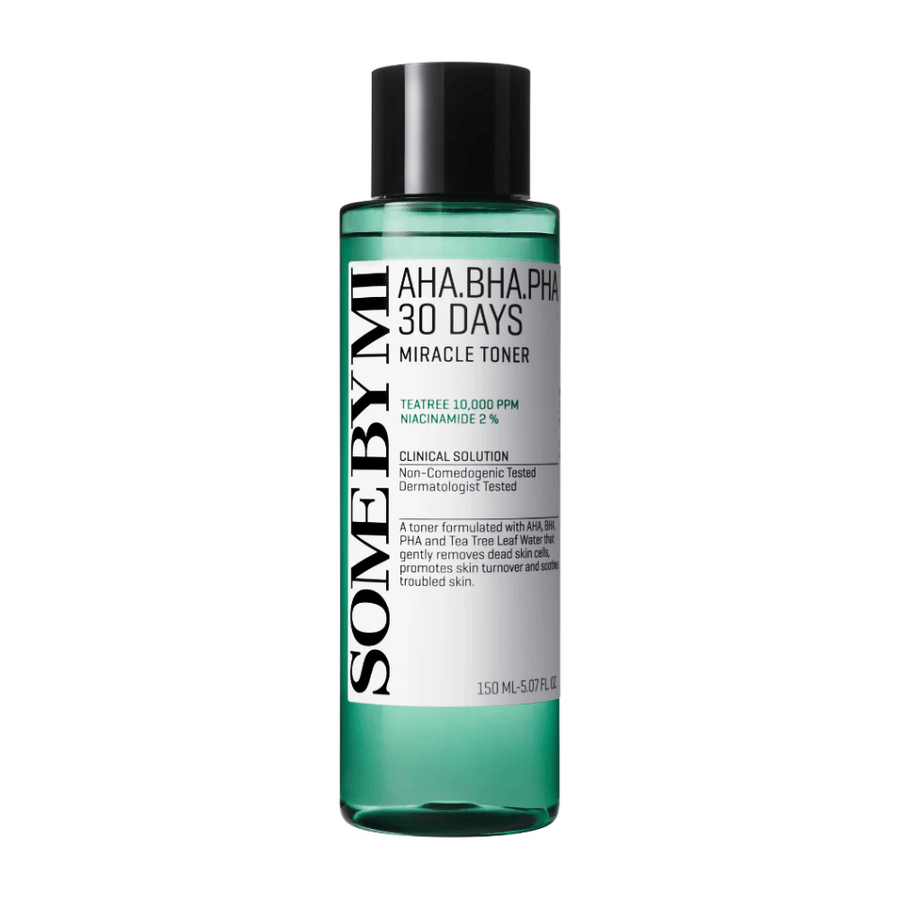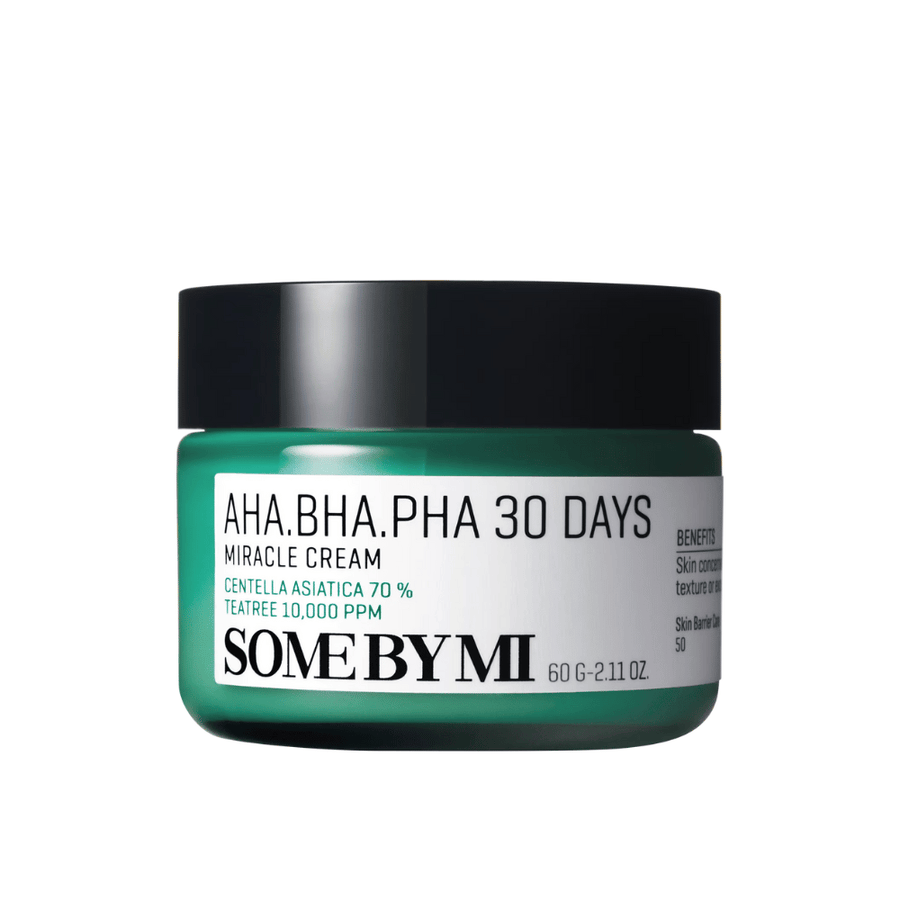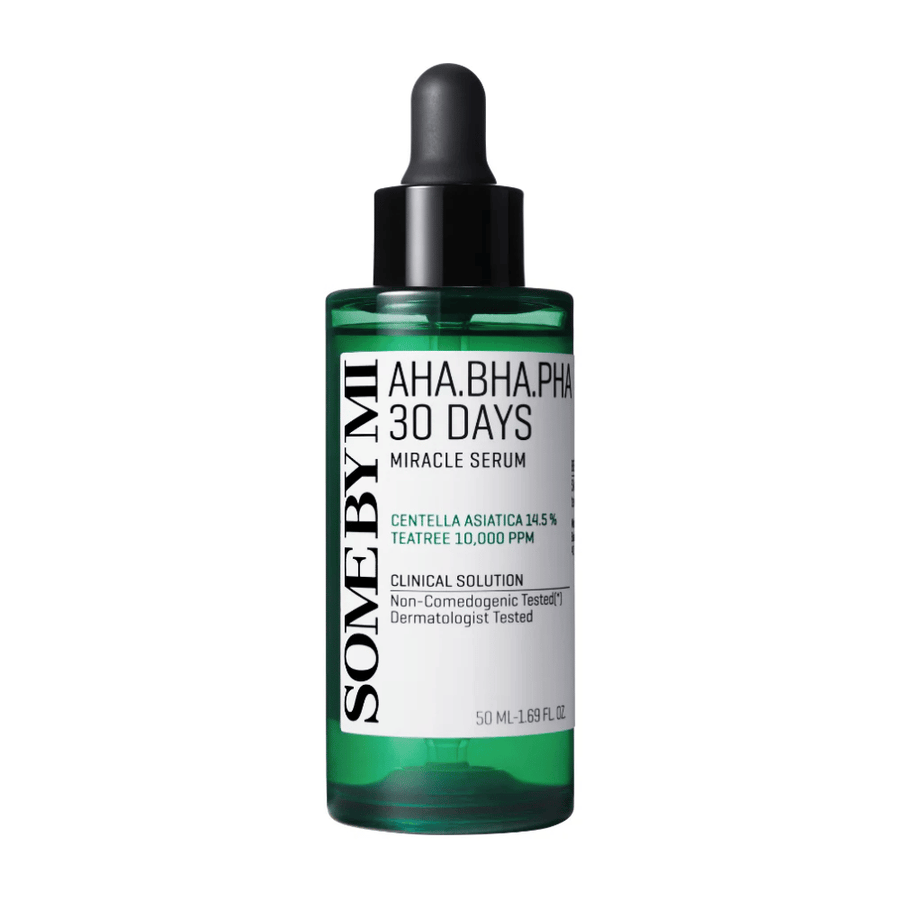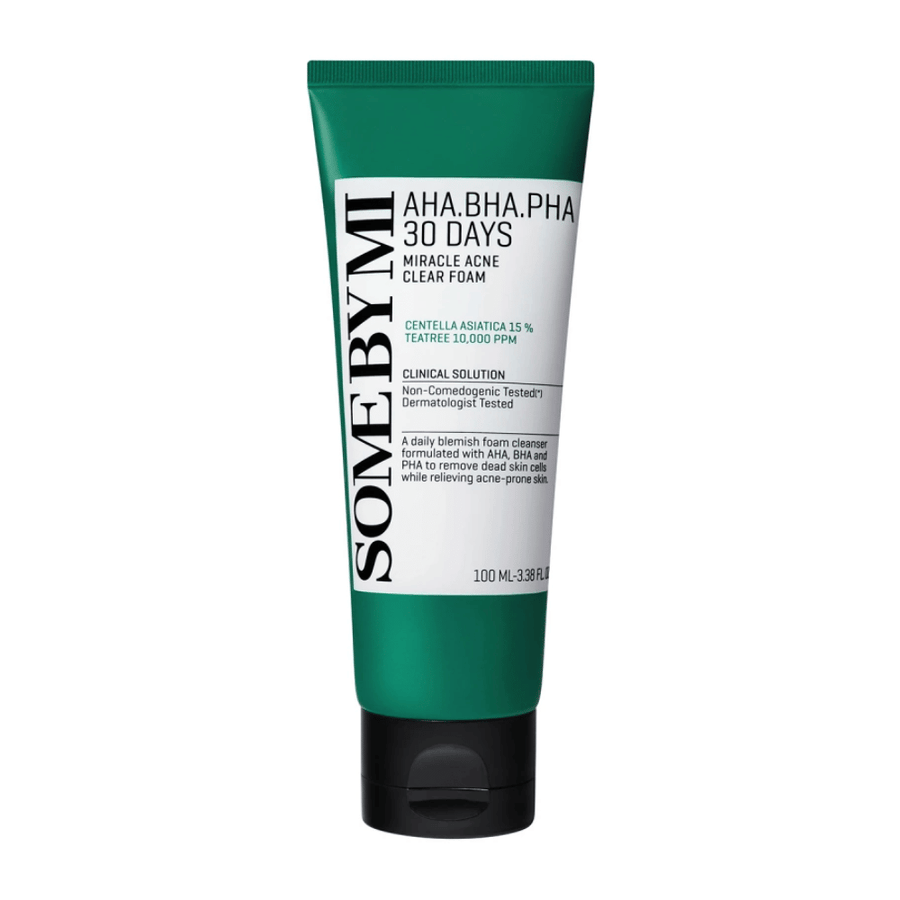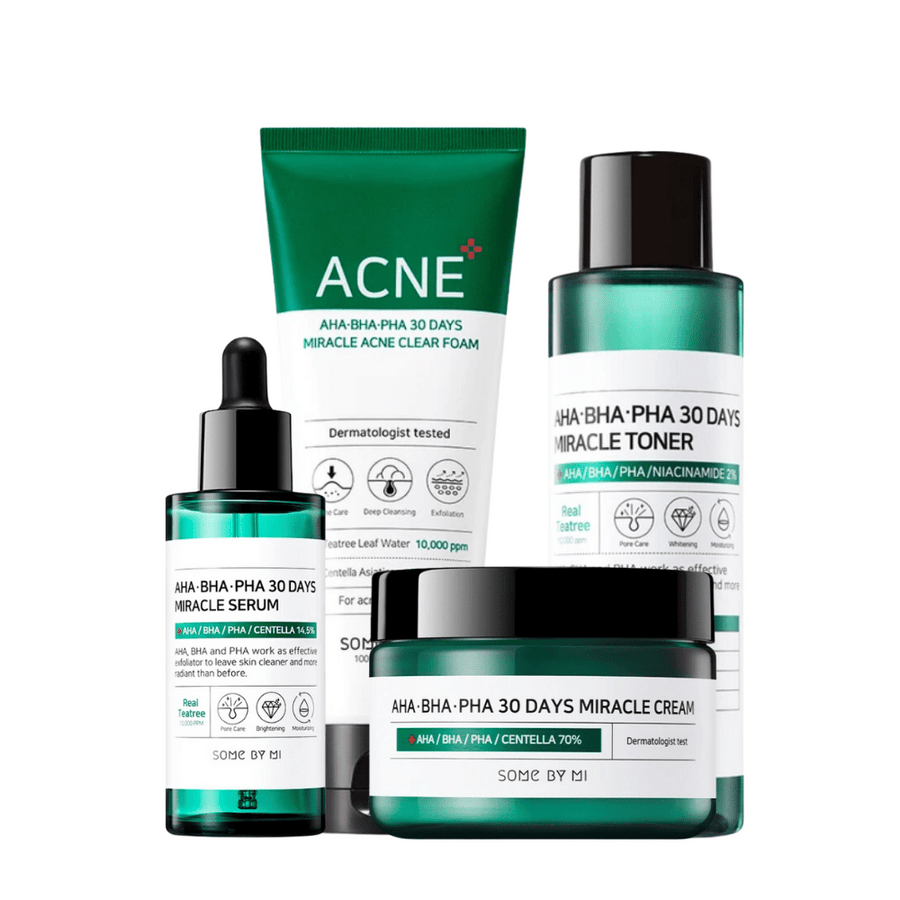Adult Acne: Treatments and Effective Tips
Adult acne is a widespread problem that can affect both men and women, often without warning. What causes adult acne and how can it be treated effectively? This text provides you with the answers and shares treatment methods and tips for managing your skin problems.
Key Takeaways
- Adult acne affects adults over 20 years old and is caused by factors such as hormones, stress, and genetic predispositions.
- The treatment of adult acne requires specific ingredients like niacinamide, azelaic acid, and retinol to effectively combat inflammation and impurities.
- Lifestyle choices such as a balanced diet, stress management, and regular physical activity are important for preventing adult acne and improving skin health.
What is Adult Acne?
Adult acne is a form of acne that affects adults over 20 years old. It is a frustrating skin problem that can involve pimples, blackheads, and even painful cysts. Adult acne can affect both men and women, but it is particularly common in women. Despite being common, it is often a source of great discomfort and reduced self-confidence for many adults.
The causes of adult acne can be many. Hormones play a significant role, especially in women under 30 where outbreaks are often linked to the menstrual cycle. Skin type and heredity are also important factors influencing the occurrence of acne. Regardless of the cause, adult acne can be both painful and distressing.
It is important to understand that adult acne is not just an extension of teenage acne. Although they may share similar symptoms, adult acne is a unique challenge that requires specific treatment methods and products. By learning more about what causes adult acne and how we can best treat it, we can take control of our skin health and regain our self-confidence. Explore our range of acne skincare to find products that can help you achieve clearer and healthier skin.
Common Causes of Adult Acne
Hormonal changes are one of the most common causes of adult acne. This is especially true for women under 30, where acne outbreaks are often linked to the menstrual cycle. Hormonal imbalance can affect sebum production and lead to inflammation, which in turn can cause acne. But hormones are not the only culprit.
Stress is another major factor that can increase the risk of adult acne. When we are stressed, the production of cortisol increases, which can lead to increased sebum production and worsened acne. It is therefore important to find ways to manage stress in daily life to reduce the risk of outbreaks.
Genetic factors also play a significant role. If acne is common in your family, the chance that you will also be affected increases. Other factors that can contribute include a diet high in sugar, which can increase insulin release and worsen acne. Additionally, age can play a role, as cell renewal slows down over time, causing dead skin cells to clog pores and contribute to adult acne.
How Does Adult Acne Differ from Teenage Acne?
There are several differences between adult acne and teenage acne. One of the most noticeable differences is where on the face the acne occurs. Adult acne tends to appear more around the cheeks and jawline, while teenagers' acne often occurs in the T-zone, that is, the forehead, nose, and chin.
Another difference is the causes behind acne. Teenage acne, also known as acne vulgaris, is often more inflamed due to overproduction of sebum during puberty. Adult acne, on the other hand, can be more persistent and difficult to treat because it is often linked to hormonal changes and other adult-related factors. factors.
Adult acne also tends to be more persistent and may require a different treatment strategy compared to teenage acne. Therefore, it is important to use products and methods that are tailored for adult skin to effectively treat and prevent breakouts in adulthood.
Effective ingredients for treating adult acne
To effectively treat adult acne, it is important to use the right ingredients. One of the most effective ingredients is niacinamide, which is known to reduce inflammation and improve skin elasticity. It also helps to reduce redness and improve the overall health of the skin.
Azelaic acid is another powerful ingredient that can help treat acne. It is effective against both inflammation and redness, and helps to eliminate impurities. Retinol is also a popular ingredient for treating both acne and aging skin by accelerating cell renewal.
Other effective ingredients include centella asiatica, salicylic acid, and propolis, all of which have been proven effective against adult acne. By including these ingredients in your skincare routine, you can improve your skin health and reduce the occurrence of acne. Explore products with azelaic acid, retinol, centella asiatica, salicylic acid and propolis to find the best solutions for your skin.
Product types for acne-prone adult skin
When it comes to choosing products for acne-prone adult skin, it is important to choose the right formulations. Products with light formulas that exfoliate and eliminate bacteria are ideal. Formulations containing salicylic acid or azelaic acid are particularly recommended for treating acne.
Acne-prone skin requires products that effectively remove impurities and clean the pores. Here are some important products to consider:
- Mild cleansers that do not irritate the skin
- Exfoliants that remove dead skin cells
- Serums that address specific issues
- Light moisturizers that do not clog pores
By using these products, you can help keep the skin clean and healthy.
By using the right products, you can effectively manage and prevent acne breakouts, which in turn helps to improve the overall health and appearance of the skin. Feel free to consult a dermatologist to find the products that work best for your skin type.
Korean skincare routine for adult acne
A Korean skincare routine can be a game-changer for adult acne. One of the key components of this routine is double cleansing, which helps to effectively remove makeup and sebum. This step is important to ensure that the skin is completely clean before applying other products. Start with an oil-based cleanser to dissolve oil and makeup, and follow up with a water-based cleanser to deeply cleanse the skin.
Regular exfoliation with BHA, such as salicylic acid, is crucial for keeping pores clean and removing dead skin cells. Using a toner with centella asiatica or niacinamide can help to calming inflamed skin and reducing redness. Then, an essence with ingredients like hyaluronic acid and tea tree oil can provide the skin with necessary moisture and nourishment.
A light, non-comedogenic moisturizer is also important to prevent overproduction of sebum and maintain the skin's moisture balance. Finally, don't forget sunscreen! It is important to protect the skin from harmful UV rays and prevent hyperpigmentation.
Specific treatments such as sheet masks with snail secretion can also be very effective for soothing acne and improving skin elasticity. The Korean skincare routine emphasizes the importance of customizing products to reduce inflammation, decrease pimples, and improve overall skin health, which should be done carefully.
Tips for managing acne scars and uneven skin texture
Acne scars and uneven skin texture are common issues for those suffering from adult acne. An effective method for managing these problems is laser treatment, which can help smooth the skin's surface and reduce the visibility of scars. Microneedling is another popular treatment that can stimulate collagen production and improve skin texture.
Chemical peeling is also an effective treatment for acne scars. It helps remove the top layer of skin, which can reduce spots and provide a more even skin tone. By using these treatments, you can significantly improve the appearance of your skin and reduce the visibility of scars. Learn more about how chemical peeling can help you achieve clearer and more even skin!
In addition to professional treatments, it is important to use products containing ingredients like niacinamide and retinol in your daily skincare routine to further improve skin texture and reduce scarring. These tips and treatments can make a big difference for your skin health.
Important lifestyle choices to prevent adult acne
Lifestyle choices play a significant role in preventing adult acne. Here are some tips for managing acne:
- Maintain a balanced diet rich in fruits, vegetables, and whole grains.
- Drink plenty of water to keep the skin well-hydrated.
- Avoid excessive consumption of sugar and fatty foods.
- Get enough sleep to support skin recovery.
- Manage stress through relaxation techniques like yoga or meditation.
By following these guidelines, you can help reduce breakouts and improve your skin health.
Regular physical activity can help regulate hormones and reduce stress, both of which are linked to acne. Additionally, stress management techniques such as meditation or yoga can be very helpful in preventing hormone-induced breakouts.
By making these lifestyle choices, you can effectively prevent adult acne and improve your skin health in the long term. It is important to remember that diet, physical activity, and stress management all play a significant role in skin well-being.
Summary
In summary, adult acne is a common issue that can affect both men and women. By understanding what causes adult acne and how it differs from teenage acne, we can better manage and treat this skin issue. Effective ingredients like niacinamide, azelaic acid, and retinol can make a big difference, as can the right products and a well-tailored Korean skincare routine.
Important lifestyle choices such as a balanced diet, adequate hydration, physical activity, and stress management can also play a significant role in preventing acne. By following these advice and tips, you can take control of your skin health and regain your confidence. Thank you for that you took the time to read our guide, and we hope that you have gained valuable insights and tools to manage adult acne.
Frequently Asked Questions
What are the most common causes of adult acne?
The most common causes of adult acne are hormonal changes, stress, and genetic factors. It is important to identify these causes to effectively manage acne problems.
How does adult acne differ from teenage acne?
Adult acne differs from teenage acne as it often appears around the cheeks and jawline, while teenage acne usually affects the T-zone. Additionally, adult acne is usually related to hormonal changes and can be more persistent.
What ingredients should I look for in products to treat adult acne?
To effectively treat adult acne, you should look for ingredients such as niacinamide, azelaic acid, retinol, centella asiatica, and salicylic acid. These substances have been shown to be particularly helpful in reducing acne and improving skin condition.
What is a Korean skincare routine and how can it help with adult acne?
A Korean skincare routine can effectively help with adult acne by focusing on double cleansing and the use of non-comedogenic products that soothe the skin and maintain moisture balance. By regularly exfoliating and using toner, one can reduce the occurrence of pimples and inflammations.
How can I prevent adult acne through lifestyle choices?
To prevent adult acne, you should focus on a balanced diet, regular exercise, and stress management through meditation. These lifestyle choices contribute to healthier skin and can reduce the risk of acne outbreaks.





